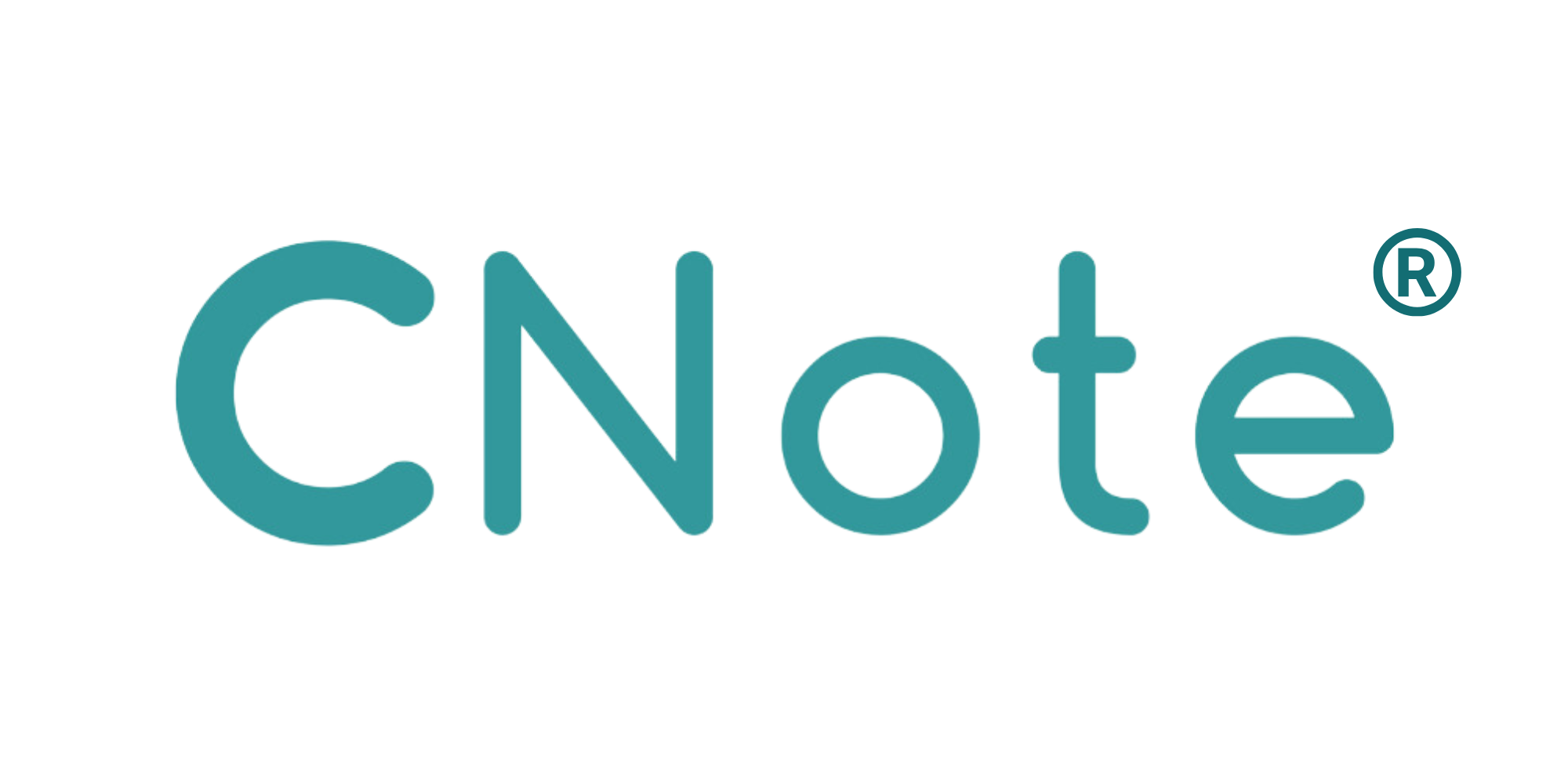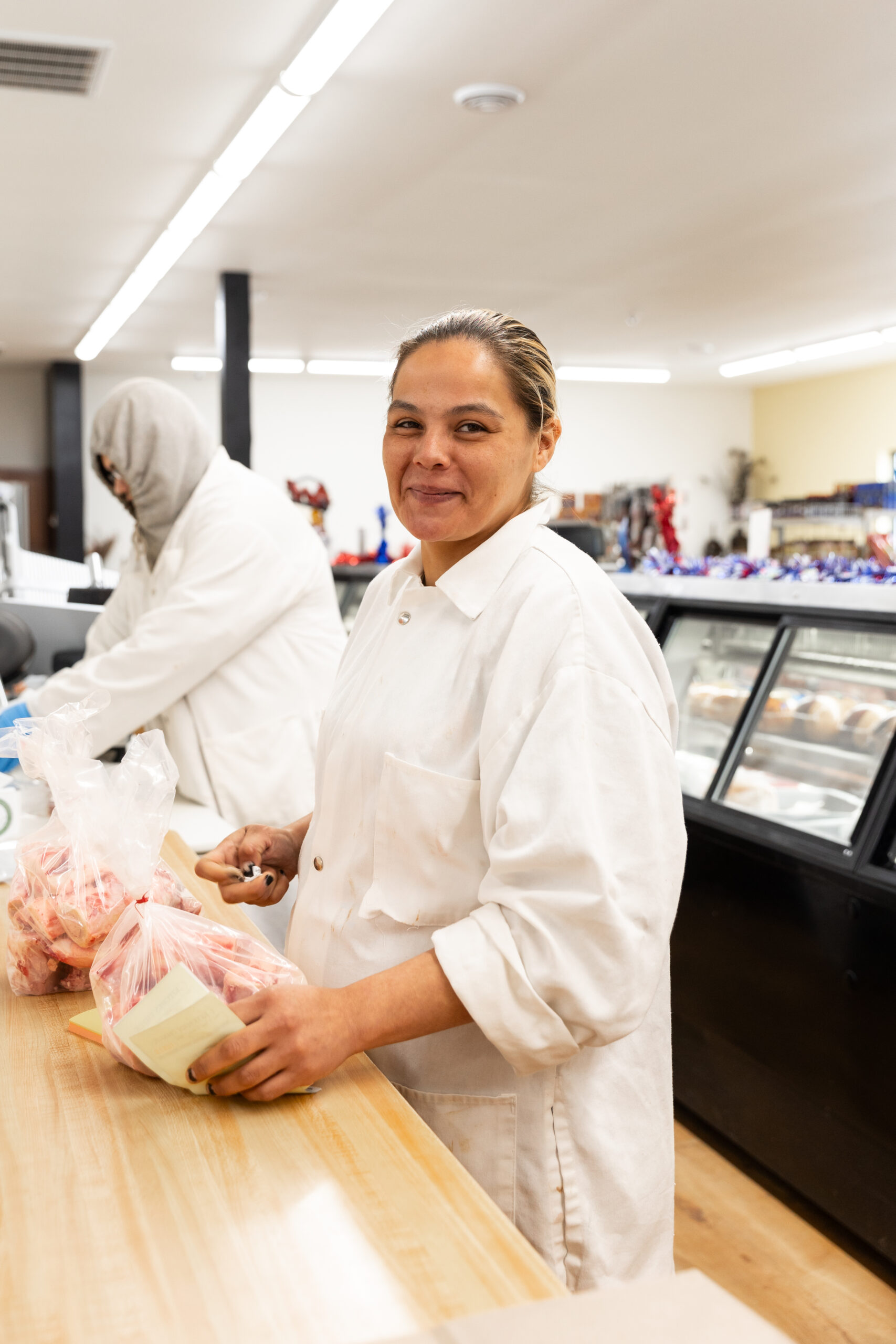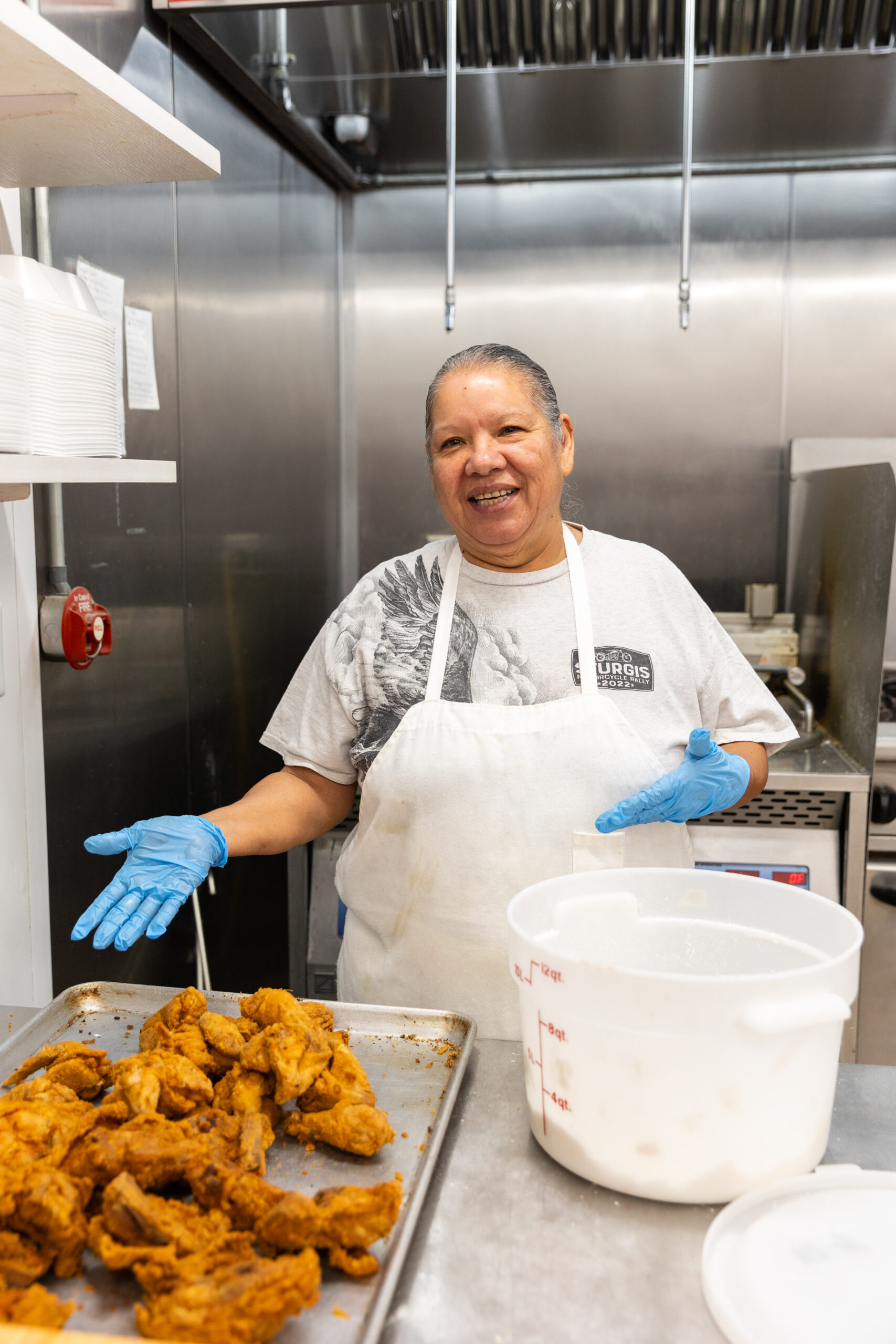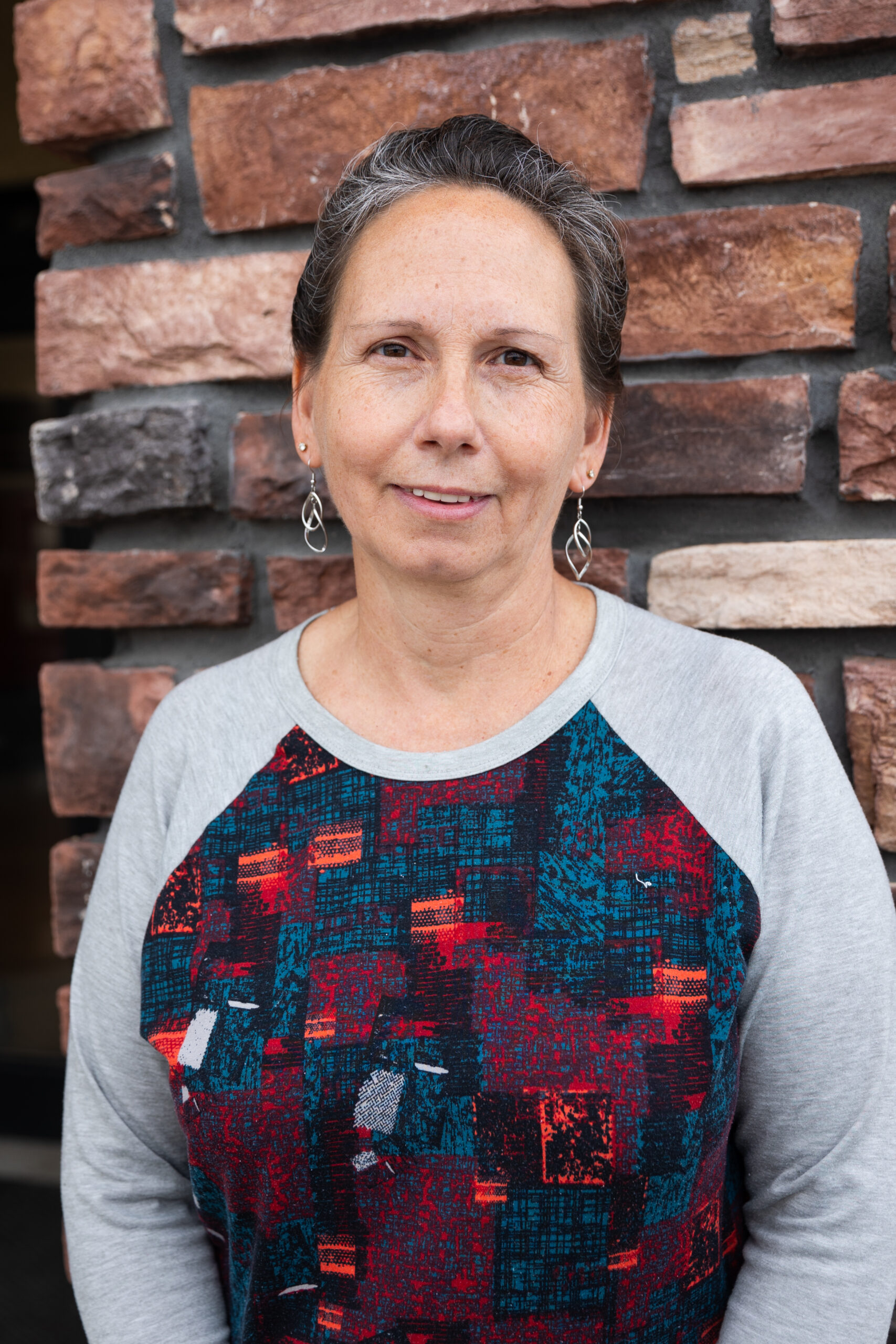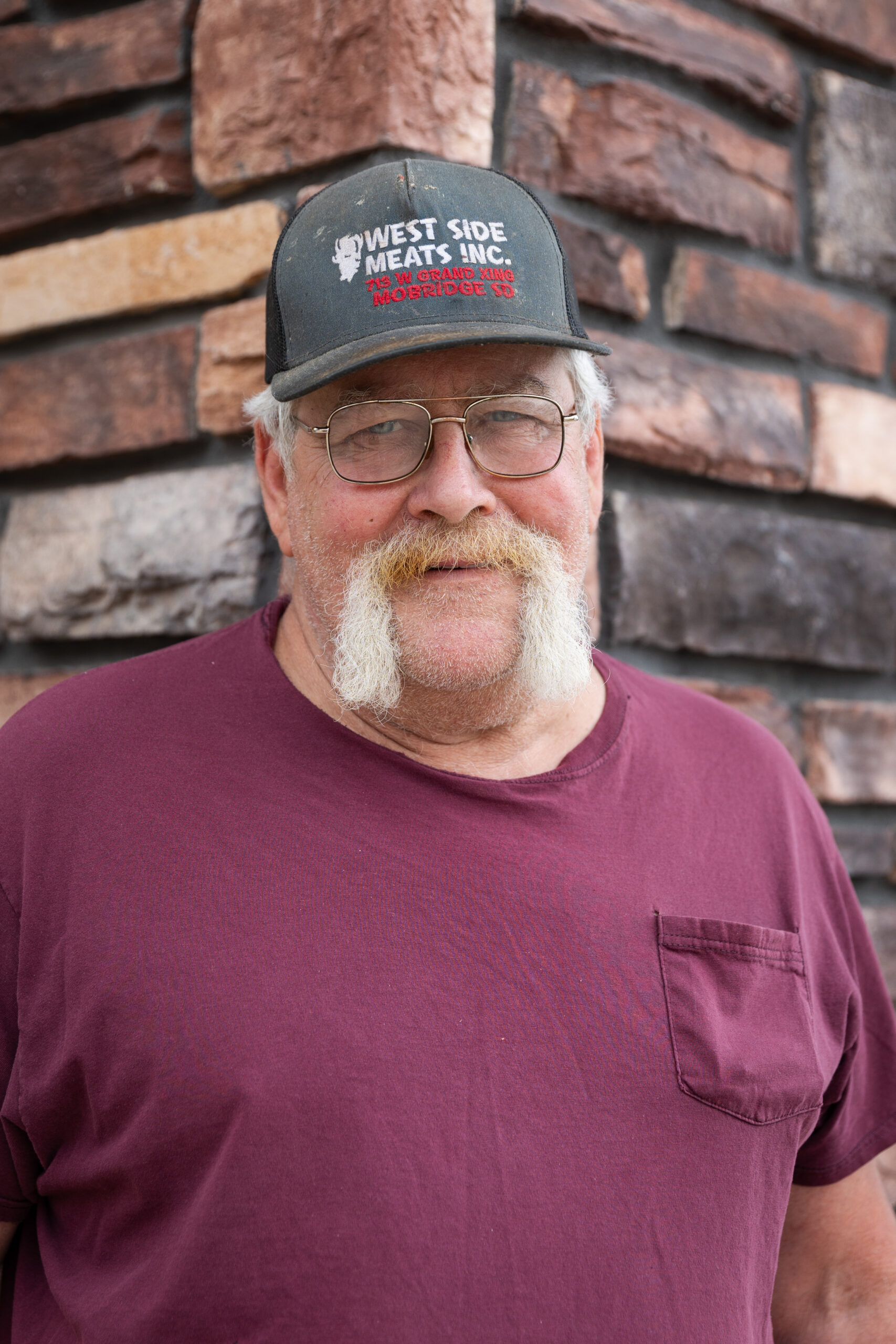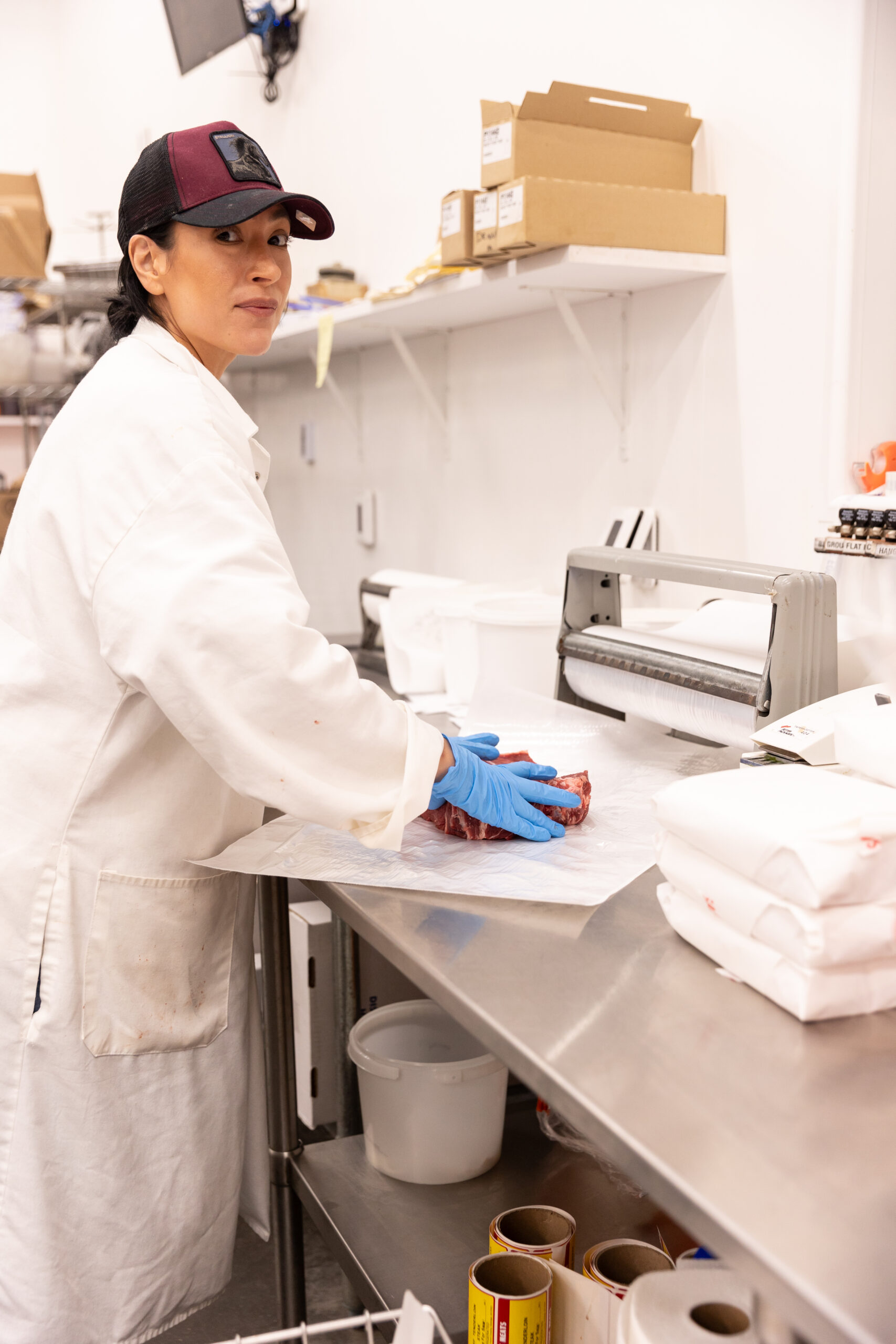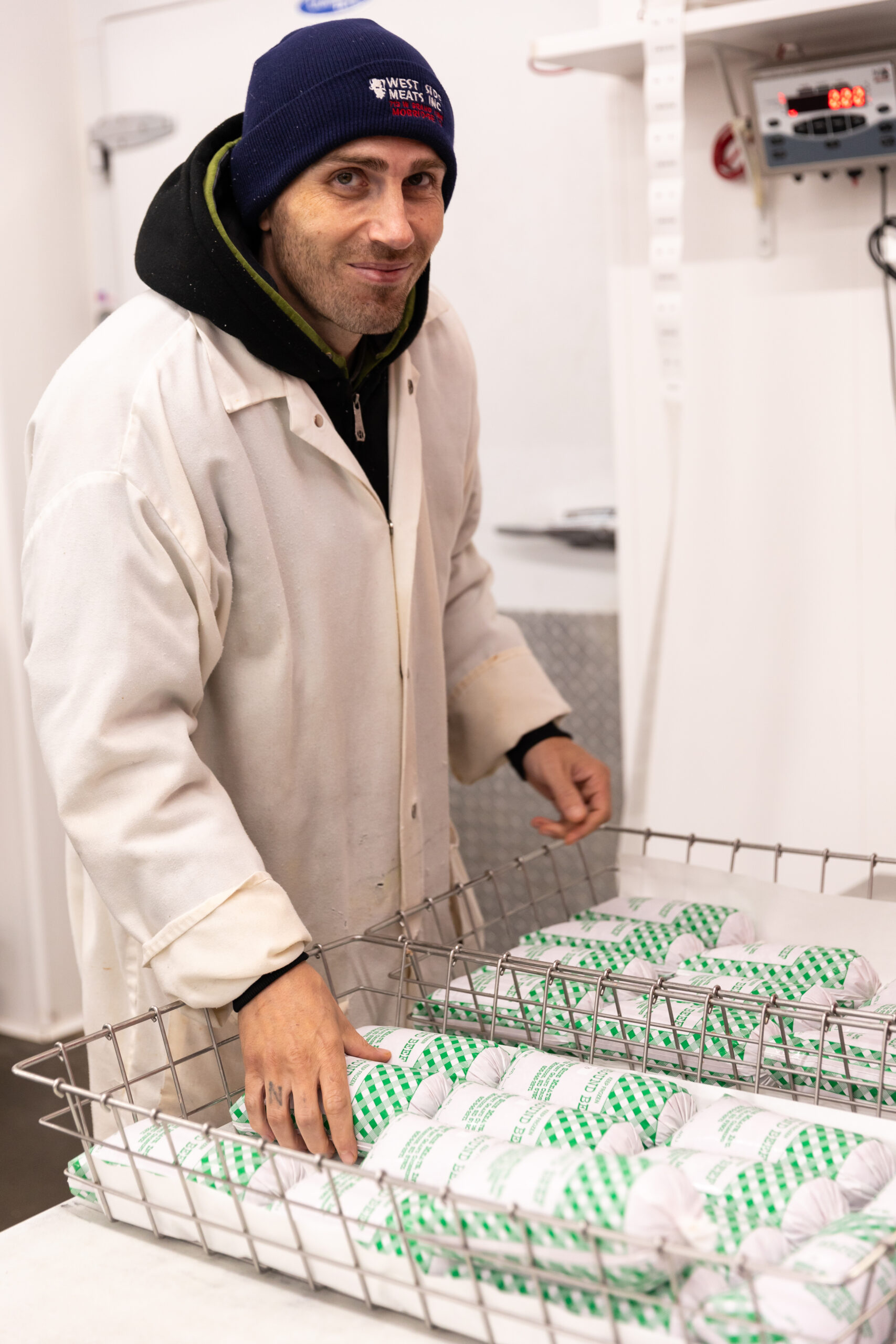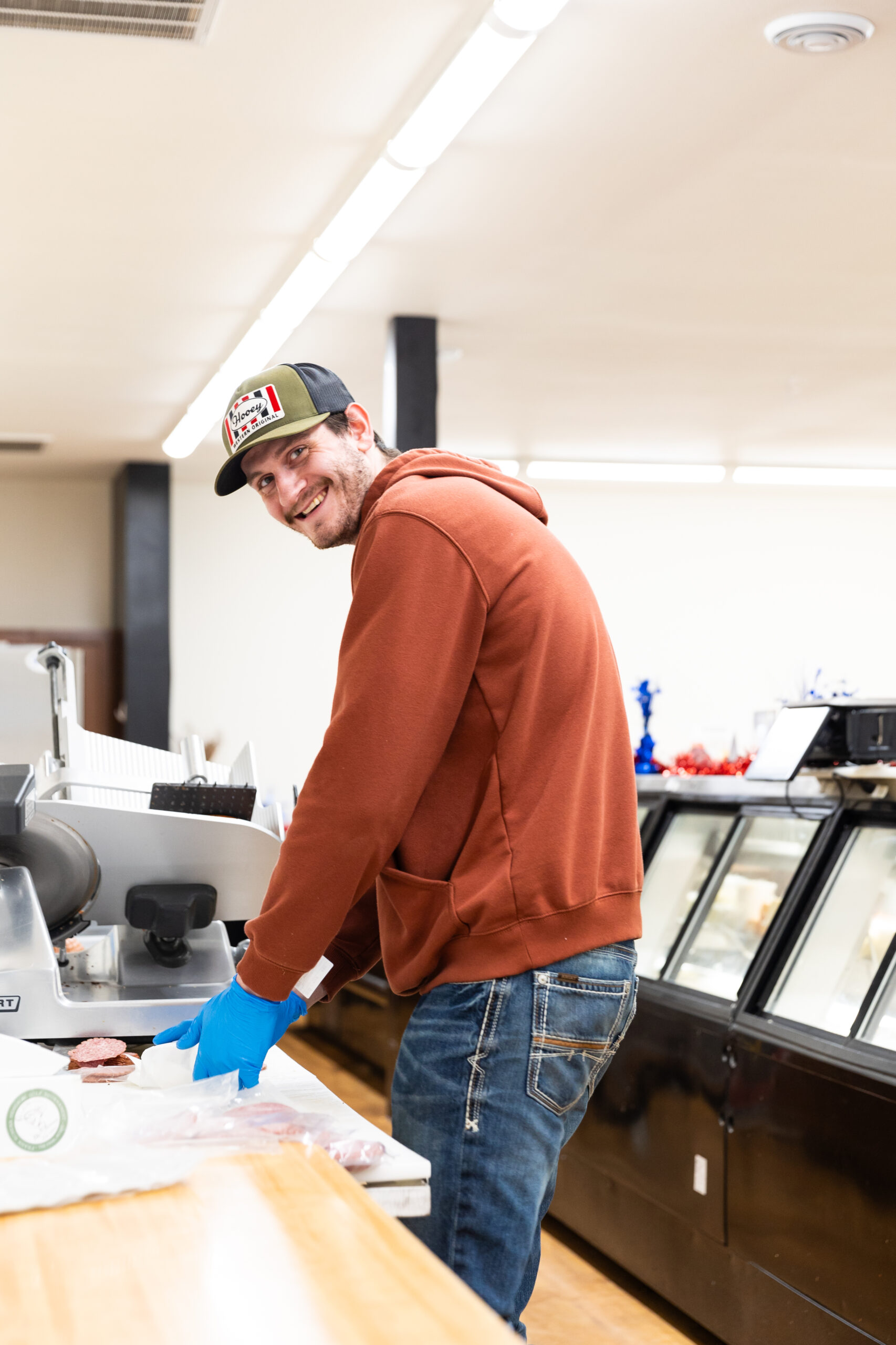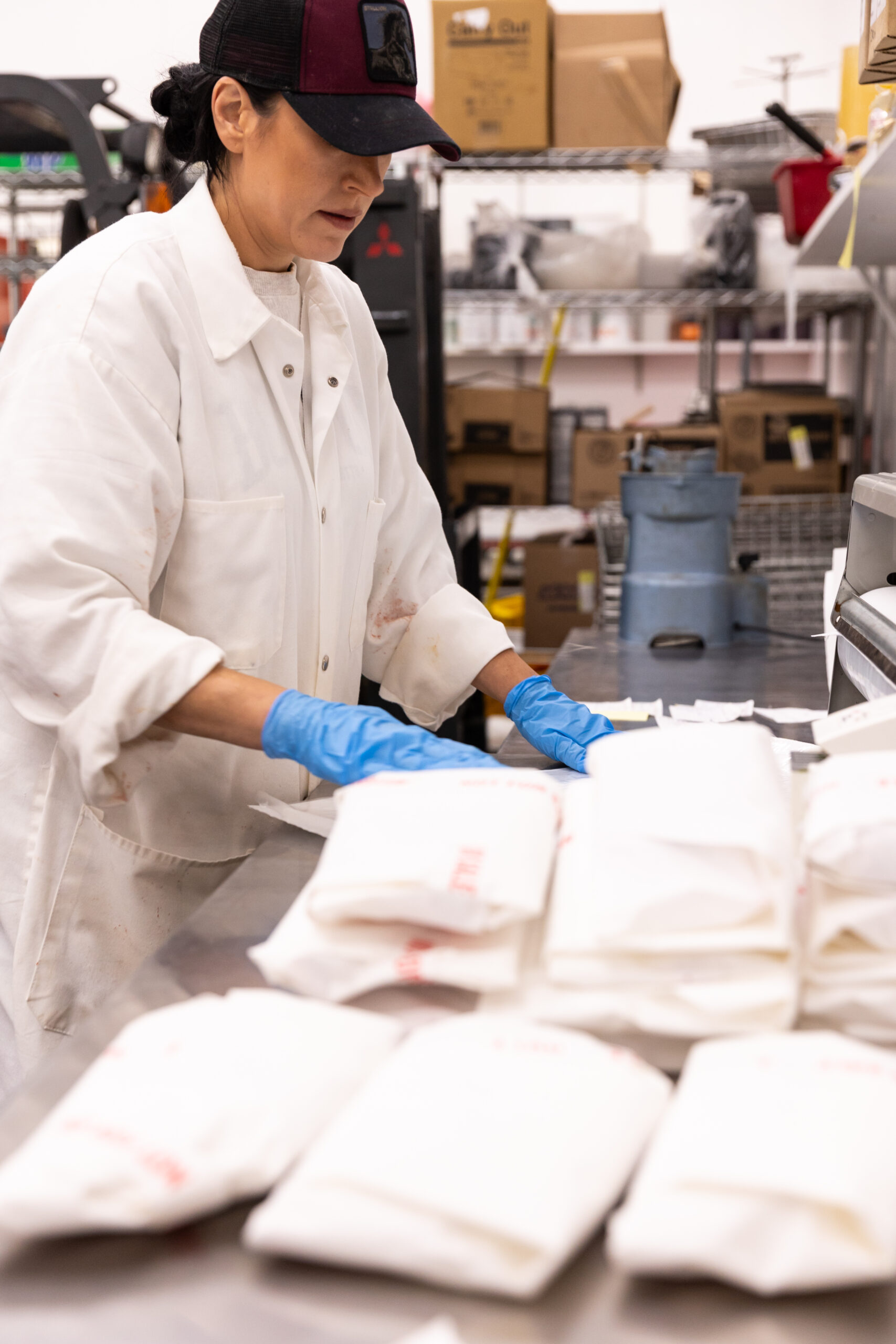Long before the Cheyenne River Sioux Reservation was established in South Dakota in 1889, the people of the Lakota Nation sustained themselves off of the land, with the buffalo, or American bison, as its primary source of food. Over a century later, tribal ties to the sacred animal still run strong. The Cheyenne River Sioux Tribe and its retail operation, the Cheyenne River Buffalo Company, are creating new opportunities for economic development, expansion, and sustainability for the Native American community.
At the helm of the Cheyenne River Buffalo Company is Jayme Murray, a sixth generation rancher on Cheyenne River, who grew up on a cow-calf ranch in the area before attending South Dakota State University and working at the Bureau of Indian Affairs for almost 20 years. During his tenure with the organization, he held several roles, ranging from managing all the trust lands on the reservation to serving as the Fiduciary Trust Officer for the Office of the Special Trustee for American Indians.
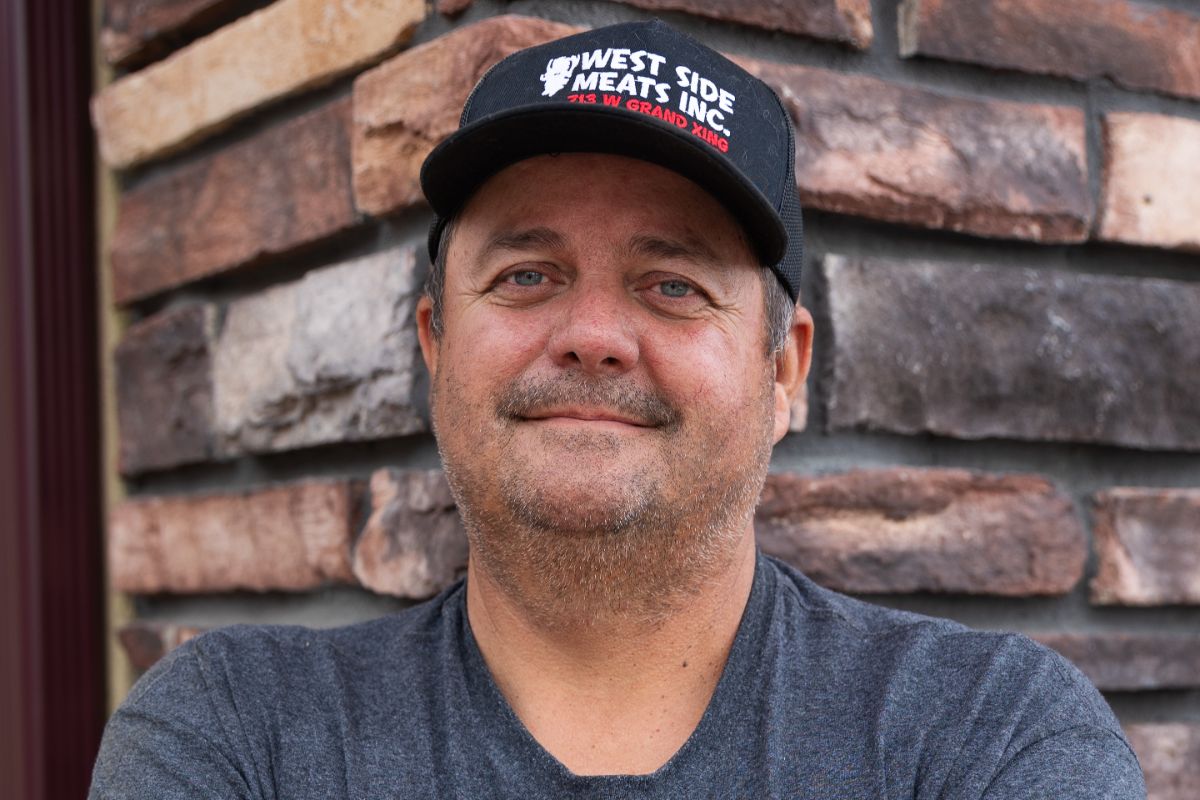 In 2019, The Cheyenne River Sioux Tribe approached Jayme with an offer to take over the management of their buffalo corporation, a business corporation which operates independently of, but is owned by, the tribe. For Jayme it was a perfect opportunity to bring his expertise to an organization near and dear to his heart.
In 2019, The Cheyenne River Sioux Tribe approached Jayme with an offer to take over the management of their buffalo corporation, a business corporation which operates independently of, but is owned by, the tribe. For Jayme it was a perfect opportunity to bring his expertise to an organization near and dear to his heart.
The Cheyenne River Buffalo Company already owned a herd of 450 bison when Jayme came on, but he was quickly tasked with growing the organization and their profits. The company had a vision of being better able to grow, process, and market their products under their own label on the retail side. But there was more to this vision of growth than just finances; the Cheyenne River is one of the most economically distressed areas in the United States, where unemployment rates run as high as 80%. As a non-gaming tribe, The Cheyenne River Sioux had to seek out other avenues to develop economically.
“We have had to lean on what we do have,” said Jayme. “We have agriculture, and we have buffalo, and we have beef that’s some of the best in the world. And if we’re going to stimulate economic growth here at home, it needs to be through what we’re able to do better than anyone.”
In July of 2019, a golden opportunity presented itself which Jayme knew they couldn’t pass up: a local slaughter facility and associated real estate property went on sale on the border town of the reservation. Jayme knew that purchasing it would allow his team to increase the size of the herd and scale production to meet demand from local restaurants and butchers.
The CDFI Difference
Jayme and his colleagues faced a significant hurdle to purchase the facility and surrounding land—financing.
To begin, the Cheyenne River Buffalo Company explored some traditional lenders. Jayme put together a pitch and a business plan, which, according to him, the lending teams did not even look at. “It was an issue of collateral,” Jayme explained. “This was a new venture for us. While we had profit and loss statements and tax returns, we were still essentially trying to borrow based on projections.”
Jayme reached out to Cris Stainbrook, President of the Indian Land Tenure Foundation, who he had worked with on several occasions. He provided the company’s business proposal and plan, and the Foundation immediately stepped in to help. First, they provided Jayme’s team with an attorney, who had experience working on similar projects. “That was very helpful for us because we were already having to put up quite a bit of capital of our own to make this all happen,” said Jayme. “That provided an opportunity to save a little bit and make sure everything from the due diligence to the purchase agreement documents were done properly.”
The Foundation also put Jayme in touch with the Indian Land Capital Company (ILCC), a Native-owned CDFI they had created in 2005 to provide alternative loan options to Native Nations for tribal land acquisition and economic development projects. CNote partners with CDFIs like The Indian Land Capital Company across the country through its customized impact investment offerings that allow corporations to invest in a portfolio of CDFI loan funds selected to meet their impact-aligned goals and to improve their performance on thematic ESG measures.
Jayme could instantly tell the difference between the traditional lenders he had attempted to work with in the past and ILCC. “Their approach as a CDFI really made a difference. They looked outside the lines a little more than conventional lenders and were able to work through a few kinks to support the Cheyenne River Buffalo Company.”
Despite slowdowns due to COVID, the Cheyenne River Buffalo Company was able to close on the property and facility on February 1st of 2021, with $3M in financing from ILCC. As an added bonus, Jayme was able to retain all of the original equipment, inventory, and employees from the slaughter facility. “The facility closed down on Friday and then opened on Monday morning with us as the owners. If you didn’t know that we had bought it, you wouldn’t have even noticed the difference.”
Local Impact with International Interest
Despite the incredible effort it took to purchase the new land and facility, there was no time for Jayme and his team to rest. Initially, the Cheyenne River Buffalo Company was a direct to consumer business, whose biggest clients were local Native American restaurants and butchers. With time, however, Jayme had seen skyrocketing demand from domestic organizations as large as the Department of Defense and internationally from companies in the Middle East and Singapore. To keep up with this heightened demand, the company ballooned to owning over 1100 bison and now is getting ready to launch an online sales portal to enable consumers to more easily purchase their products from anywhere.
Jayme’s motivation still ran deeper than just the growth of the company. COVID had exposed the volatility of food supplies, and what had started as a financial venture for the company had turned into a personal mission of food sovereignty. His goal is not only to become the premier buffalo meat company in the world, but also to put those products on local shelves to be made available for everyone in The Cheyenne River Sioux Tribe.
“At the end of the day our goal would truly be to make our buffalo and locally sourced beef products available to all of our people. If we could do that, that would be a success. We have visions of being the premier meat company in the world, and we have the story; I mean, this animal is closer to us than to anyone else. I think there’s room for us to continue to grow and continue to be a resource to other tribes. It feels like the potential for growth just keeps reaching further and further.”
Learn More:
- The Indian Land Capital Company is a Native-owned, Certified Native Community Development Financial Institution (CDFI) providing alternative loan options to Native Nations for tribal land acquisition and economic development projects.
- CNote is a women-led investment platform that empowers individuals and institutions to invest locally to further economic equality, racial justice, gender equity, and address climate change.
